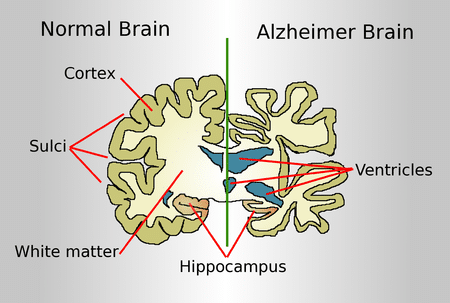Researchers develop an artificial intelligence system that detects cognitive impairment accurately and efficiently from voice recording.
Alzheimer’s diagnosis consumes a lot of time and money which includes running in-person neuropsychological tests and having to transcribe, review, analyze every small detail. To make this process easier, researchers at Boston University have developed a tool to automate this whole process of diagnosis and are to move it online.

The computational system detects cognitive impairment from audio recordings of neuropsychological tests, without any human assistance. According to Ioannis Paschalidis, a Distinguished Professor of Engineering at BU College of Engineering faster and earlier detection of Alzheimer’s could drive larger clinical trials that focus on individuals in the early stages of the disease and potentially enable clinical interventions that slow cognitive decline: “It can form the basis of an online tool that could reach everyone and could increase the number of people who get screened early.”
The AI model was trained using audio recordings of neuropsychological interviews from over 1,000 individuals. The program transcribed the interviews and encoded them into numbers using automated online speech recognition tools—think, “Hey, Google!”—and a machine learning technique called natural language processing that helps computers understand text.
A combination of demographic data, the text encodings, and real diagnoses from neurologists and neuropsychologists was used to train a final model that is meant to evaluate the severity of the individual’s cognitive impairment.
The model was able to accurately differentiate between healthy individuals and those with dementia. It also showed the difference between mild cognitive impairment and dementia. It turned out that the quality of recording or the way people spoke was less important than what they spoke. “It surprised us that speech flow or other audio features are not that critical; you can automatically transcribe interviews reasonably well, and rely on text analysis through AI to assess cognitive impairment,” says Paschalidis. The results suggest their tool could support clinicians in diagnosing cognitive impairment using audio recordings including virtual appointments.






